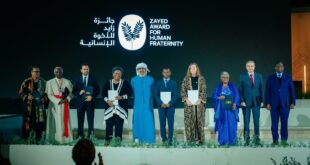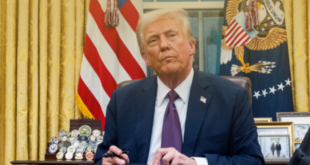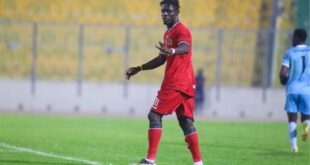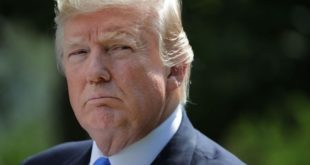Security forces in Sri Lanka raided the main anti-government protest camp in the capital early on Friday, arresting protesters and dismantling tents.
Hundreds of troops and police commandos moved on the protesters outside the presidential offices in Colombo, hours before they were due to leave the area.
A BBC video journalist was beaten by the army and one soldier snatched his phone and deleted videos.
Nine people, including two who are injured, have been arrested by police.
It comes as Ranil Wickremesinghe was sworn in as president, after ex-president Gotabaya Rajapaksa fled the country last week.
Mr Wickremesinghe – the former prime minister – is seen as deeply unpopular with the public, and has vowed tough action against demonstrators.
Sri Lanka has seen months of mass unrest over an economic crisis, and many blame the former government for mishandling the nation’s finances.
Protests had remained peaceful after Mr Wickremesinghe had been sworn into office on Wednesday. Despite deep distrust, many demonstrators had said they would give him a chance to lead the country out of its economic crisis.
In remarks after his inauguration, he said any attempt to topple the government or occupy government buildings was not “not democracy, it is against the law”.
On Friday morning, security forces moved in on the protest camp and reclaimed the building from demonstrators, who had earlier pledged to hand the building back.
Police described the incident as a “special operation to take [back] control of the presidential secretariat”.
When asked about the attack on the BBC journalist, one police spokesman said he was unaware of the incident.
The raid took place in the early hours of Friday, at around 01:00 local time (19:30 GMT Thursday). Security forces later completely sealed off a section of the road leading to the site.
BBC journalists attacked
By Anbarasan Ethirajan, BBC News, Colombo
When we heard that troops might be raiding the anti-government protest site in Colombo after midnight, we went to the spot just in front of the Sri Lankan president’s office.
Soon, hundreds of heavily armed soldiers and police commandos with riot gear descended from two directions, their faces covered.
When activists raised objections to their presence, the security personnel marched on and became aggressive. The protesters were pushed back.
Within seconds, we saw soldiers shouting, dismantling and destroying make-shift tents and other items on the pavement. Troops also moved into the president’s office which was stormed by huge crowds last week.
Activists had earlier said they would hand over the building on Friday afternoon. As we followed the soldiers, we could see they were clearing everything in their way.
The protesters were pushed up to the designated protest site less than 100m away and steel barricades were set up to stop the activists.
When we were returning from the area, a man in civilian clothes, surrounded by troops, shouted at my colleague and said he wanted to delete the videos from his phone. Within seconds the man punched my colleague and snatched his phone.
Though I explained to them we were journalists and simply doing our job, they wouldn’t listen. My colleague was attacked further and we raised strong objections. The mic of another BBC colleague was taken and thrown away.
The phone was returned after the videos were deleted from the device. Another army officer intervened and let us go.
My colleague was shaken but was able to walk back to the hotel, a few hundred metres away.
The BBC tried to get a response from the military and police on the attack, but no-one answered our calls. A state of emergency declared last week is still in place.
The government’s violence against protesters has already been criticised by civil and legal groups.
“Unnecessary use of brute force will not help this country and its international image,” said the nation’s Bar Association leader, Saliya Peiris in a statement.
bbc
 Home Of Ghana News Ghana News, Entertainment And More
Home Of Ghana News Ghana News, Entertainment And More





